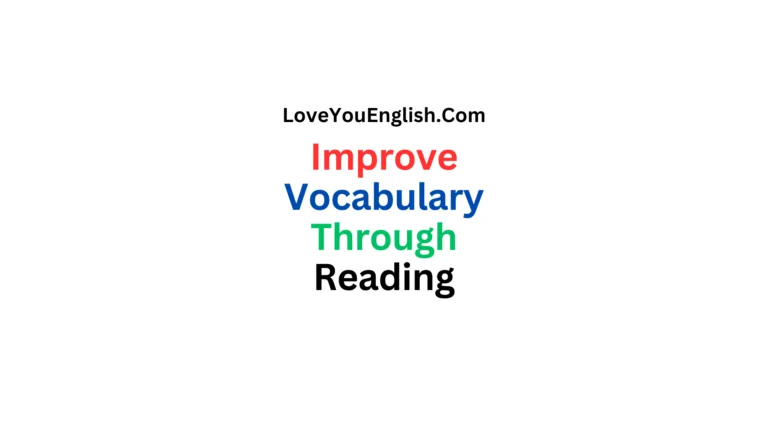How to Improve Your English Reading Skills
Reading is one of the most important skills you need to master any language, including English.
Good reading skills allow you to understand books, newspapers, magazines, websites, and any other written material.
Improving your reading abilities will help you communicate better and learn faster.
If your English reading is not as strong as you’d like it to be, don’t worry!
There are many easy techniques you can use to get better at reading in English.
This lesson will explain some of the best ways to practice reading and improve your skills.
Start With Simple Material
When you are first working on improving your reading, it’s best to start with very easy materials.
Things like children’s books, comic books, or short news articles for beginners make good starting points.
The language will be simple with common vocabulary words.
The sentences will be short and straightforward.
This allows you to focus on the key words and basic sentence structures rather than getting overwhelmed by complexity.
As you practice and gain more skill, you can gradually move to more advanced reading materials.
But starting too difficult right away will only frustrate you and make the process of learning much harder.
Build a strong foundation first before trying to take on harder texts.
Read more:
- Explore the Fascinating World of Online Books
- How to Talk About Travel and Transportation
- How Learning a New Language Can Boost Your Mental Health
- Useful Resources for Reading in English
- Essay About North East India
- Practical Tips to Study Long Hours Without Getting Tired or Sleepy
Learn Word Roots
A great way to expand your English vocabulary for reading is to study word roots, prefixes, and suffixes.
Many English words share the same linguistic roots.
Once you learn these common roots, you can more easily decode and understand new words when you encounter them.
For example, words with the root “dict” (from Latin) are associated with speaking or words, like “dictionary,” “diction,” “dictate,” and so on.
If you know the root means related to words or speaking, you can make an educated guess about the meaning of an unfamiliar word with that root.
The same goes for prefixes like “re-” meaning again, and suffixes like “-ing” making a verb into a noun (swimming, walking, reading, etc).
Learning these common roots, prefixes, and suffixes will help you decode new vocabulary.
Use Context Clues
Even if you don’t know the exact meaning of every word, you can still work out the general meaning of a sentence or passage by paying attention to context clues.
Context clues are hints about a word’s meaning based on the surrounding words and context.
For example, let’s say you don’t know the word “nurture” and you read this sentence: “The loving parents tried to nurture their children’s creativity and curiosity.”
From the context of the sentence, you could infer that “nurture” means something like encourage, support, help develop, etc.
Using logic and clues from the full context is a great skill.
Whenever you encounter an unfamiliar word, look at the full sentence and paragraph to see if you can logically determine the meaning based on the other words around it.
Making a smart guess from context is better than just skipping over every unknown vocabulary word.
Read Out Loud
One very effective technique for improving your reading is to practice reading out loud.
Sure, it might feel a little strange at first.
But reading aloud to yourself helps engage both your eyes and your ears in the process.
Hearing yourself say the words and sentences out loud makes a deeper mental imprint than just reading silently.
When you read aloud, you are also forced to pronounce every word, rather than glazing over words you don’t recognize.
Proper pronunciation is a core part of mastering a language.
Reading aloud gets your mouth used to making the necessary movements and sounds to speak English more fluidly.
Consider finding a quiet, private area to read aloud for 15-30 minutes per day if possible.
In time, your skills in pronouncing words, speaking smoothly, and understanding what you read will improve dramatically.
Listen To Audio Books
In addition to reading out loud yourself, listening to audio books read by a native speaker is very helpful.
Audio books provide an opportunity to hear proper English pronunciation, intonation patterns, and pacing.
You can both listen and follow along with the printed text at the same time.
Combining reading with listening engages both your eyes and ears simultaneously.
It requires your brain to process the language through multiple channels at once.
This reinforces new vocabulary and language patterns in your mind.
Just listening alone is useful too, but combining seeing and hearing maximizes the learning process.
You can find many free audio book recordings online for classic books and public domain materials.
Subscribe to podcast audio books or borrow them from your local library. Whenever possible, listen and follow along!
Take Notes and Summarize
Actively engaging with the material through notetaking is another way to enhance your reading comprehension.
As you read, take notes on the key information, main ideas, and important vocabulary words.
Underline or highlight sections you think are crucial to understanding the overall piece.
After finishing a chapter or section, put the material aside and try summarizing the main points in your own words.
Write a brief paragraph or outline with the core concepts covered.
This process of translating the content into your own language reinforces your understanding.
Identify the author’s primary arguments or perspectives. Note the supporting details and evidence they used.
Frequent summarization is hard work but it’s one of the best ways to internalize what you read.
Use Online Reading Resources
Thanks to the internet, there are more free resources than ever before for people wanting to improve their English reading skills.
Take advantage of these awesome online reading materials!
You can find websites with reading practice modules carefully written to progress from simple to more advanced over time.
There are collections of graded readers for different levels.
Many news websites have levels for learning reading with audio support.
Online dictionaries give pronunciations and translations to learn new words.
A little online searching will turn up more reading resources than you could possibly exhaust.
Use them to supplement your reading practice every day.
Most of these resources are free, making them an extremely affordable and flexible way to learn.
Join An English Book Club
Participating in an English book club can be an amazing way to improve your reading skills while also making new friends.
In a book club, everyone reads the same book or series of books.
You then get together, either online or in-person, to discuss the books.
Book clubs provide accountability to actually complete the reading on schedule.
They also allow you to dive deeper into the books through group discussion.
You can bounce questions off others, gain new insights, and learn unfamiliar vocabulary.
Discussing a book with native speakers pushes you to articulate your thoughts and strengthen your communication abilities.
Many communities have book clubs that welcome non-native English speakers who want reading practice.
Joining a club is an excellent way to learn while expanding your social connections.
Apply These Tips Consistently
The most important piece of advice for improving your English reading is to simply practice as consistently as possible.
Reading is a skill, and like any other skill, it requires dedicated effort over time to get better at it.
Follow the tips we covered here:
– Start with easy reading materials
– Learn word roots, prefixes, and suffixes
– Use context clues to decode vocabulary
– Read out loud
– Listen to audio books
– Take notes and summarize
– Use online reading resources
– Join a book club
But the real key is applying these techniques frequently and sticking with it for months and years.
The more days you spend practicing, the faster your skills will develop.
Reading is one of those wonderful skills that continues expanding throughout your life.
Even native English speakers are still working to expand their reading abilities.
For dedicated learners who consistently put in the effort, your English reading comprehension can become incredibly strong.
Over time, you’ll find yourself smoothly understanding books, newspapers, instructions, and any other written material with ease.
The journey is rarely quick or easy, but the rewards of being a highly skilled reader make it well worth the effort.
With patience, practice, and determination, you can absolutely develop excellent English reading skills.
Start implementing these tips today to advance on your path!








